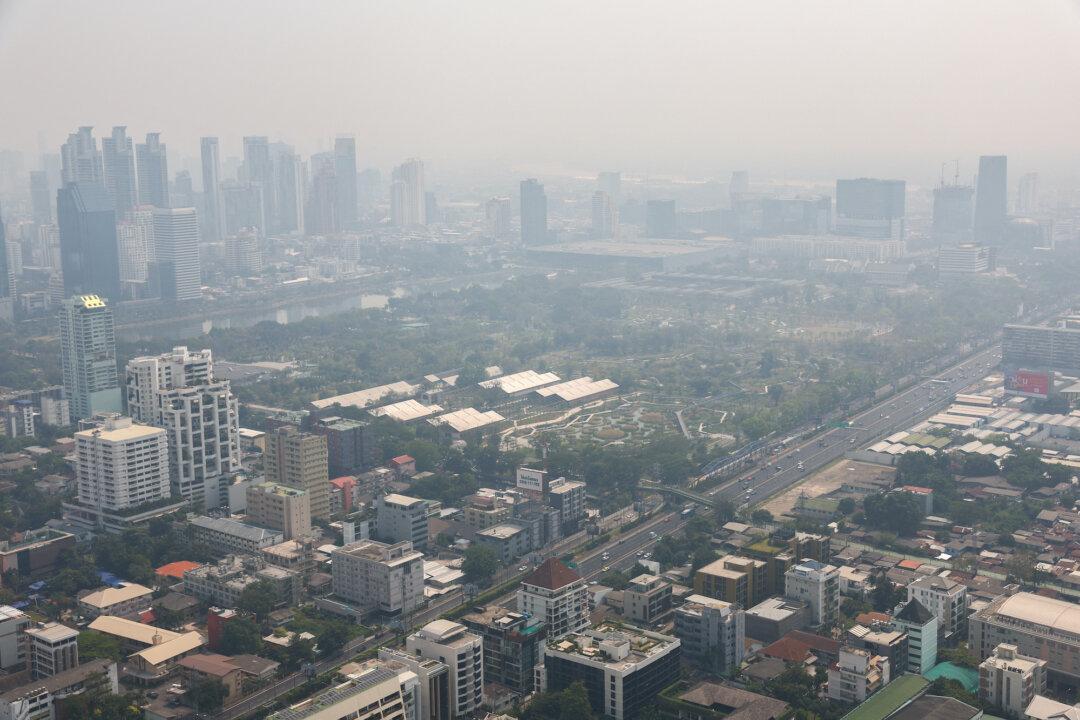Residents across Thailand have been urged to stay indoors and wear face masks when leaving their houses as the country experiences dangerously high levels of air pollution.
Thai government spokesman Anucha Burapachaisri said Wednesday that Thailand’s prime minister had advised companies to allow workers to work from home to reduce air pollution from traffic, The Nation reported.





